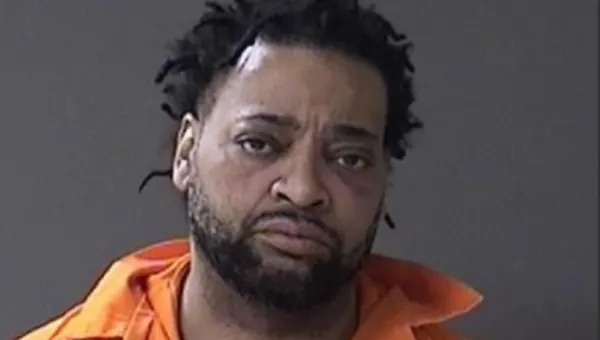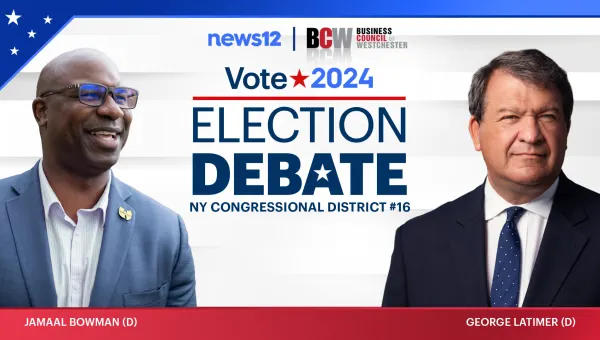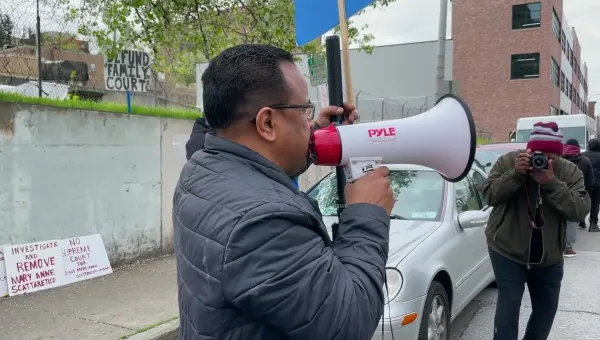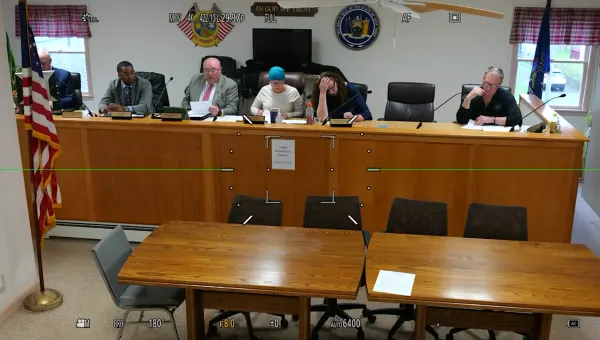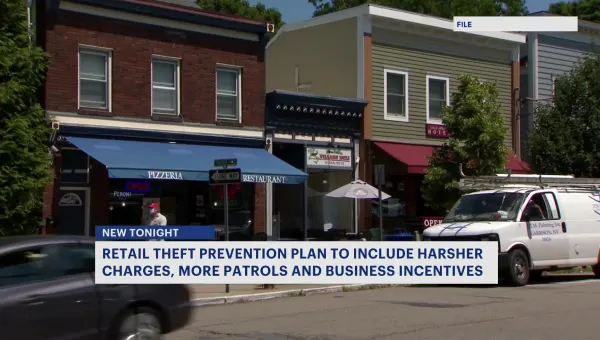Historic bailout bill passes Congress; Bush signs
(AP) - They held their noses and voted "yes." Now lawmakers in both parties - along with President Bush - arewaiting to see whether their historic $700 billion bailout for thefinancial industry can stabilize
News 12 Staff
•
May 28, 2014, 6:55 PM
•
Updated 3,614 days ago
Share:

(AP) - They held their noses and voted "yes."
Now lawmakers in both parties - along with President Bush - arewaiting to see whether their historic $700 billion bailout for thefinancial industry can stabilize the tottering economy and preventa broader meltdown.
"We have acted boldly to help prevent the crisis on Wall Streetfrom becoming a crisis in communities across our country," Bushsaid shortly after the plan cleared Congress, although he conceded,"our economy continues to face serious challenges."
Reluctant Democrats and Republicans banded together Friday toapprove the rescue plan - the broadest government intervention inmarkets in decades - on a 263-171 vote. Bush swiftly signed it.
Just a month before elections in which the sour economy is thedominant theme, Congress pushed the package through in a strikingturnaround from the measure's failure earlier in the week, whichsent the stock market plummeting.
Friday's vote capped an extraordinary two weeks of tumult inCongress and on Wall Street, punctuated by urgent warnings fromBush that the country confronted the gravest economic disastersince the Great Depression if lawmakers failed to act.
And it was followed by somber reminders on Wall Street, whereenthusiasm over the rescue gave way to worries about obstaclesstill facing the economy, sending the Dow Jones industrialsdropping 157 points. The Labor Department said earlier in the daythat employers had slashed 159,000 jobs in September, the largestcut in five years.
Scores of jittery lawmakers who opposed the measure Mondayhopped aboard a revised version in the final vote, fearing acrushing economic contagion that was spreading to theirconstituents.
"Let's not kid ourselves: We're in the midst of a recession.It's going to be a rough ride, but it will be a whole lot rougherride" without the rescue plan, said Rep. John A. Boehner, R-Ohio,the minority leader, as he prepared to cast his vote.
Treasury Secretary Henry Paulson pledged quick action to get theprogram up and operating.
The bailout, which gives the government broad authority to buyup toxic mortgage-related investments and other distressed assetsfrom tottering financial institutions, is designed to ease a creditcrunch that began on Wall Street but is engulfing businesses aroundthe nation.
"In these past two weeks, we've seen things we never thought wewould see before in terms of the economic insecurity of our owncountry," said House Speaker Nancy Pelosi, D-Calif. She said themeasure would "begin to shape the financial stability of ourcountry and the economic security of our people."
Rep. Barney Frank, D-Mass., the Financial Services Committeechairman, said the rescue bill was just the beginning of a muchlarger task Congress will tackle next year: overhauling housingpolicy and financial regulation in a legislative effort he comparedto the New Deal.
"We were the EMTs rushing to the rescue of an economy thatsuddenly found itself choking, but now we have to perform moreserious reform," Frank said.
Just four days earlier, the previous version of the bill wassent down to defeat, largely at the hands of angry conservativeRepublicans. On Friday, a total of 33 Democrats and 25 Republicansswitched from opposition to support. In all, 91 Republicans joined172 Democrats to support the measure while 108 Republicans and 63Democrats voted "no."
The reversal reflected a high-stakes political environment. Somelawmakers were worried about their own jobs, but others - mostlyDemocrats - focused on the prospect that a new president could havea far more significant effect on the economy than any one piece oflegislation.
Several of the Democratic switchers were members of theCongressional Black Caucus who said they changed course aftersecuring commitments from presidential candidate Barack Obama thathe would back legislation to help struggling consumers andhomeowners facing foreclosures if he wins the White House.
"It's not too often you get the future president telling youthat his priority matches your priority," said Rep. ElijahCummings, D-Md., one of 13 black lawmakers who switched from "no"to "yes."
Republican presidential candidate John McCain also lobbied forthe measure, according to aides who declined to say whom he called.
Rep. Roy Blunt, R-Mo., the party vote-counter, said McCainphoned Rep. John Shadegg, a fellow Arizonan who switched to"yes."
The legislation's roller-coaster ride through Congress began ata somber meeting in Pelosi's office in mid-September, where Paulsonand Federal Reserve Chairman Ben Bernanke frightened seniorDemocrats and Republicans with their warnings of an impendingeconomic collapse without quick legislative action.
As lawmakers scrambled to draft a bill, they were barraged byangry calls from constituents to reject what many saw as a hugegiveaway to the very financial institutions that helped cause thesubprime mortgage meltdown at the root of the economic crisis -with nothing to help its ordinary victims.
"Pray for our republic," intoned Rep. Marcy Kaptur, D-Ohio, aleading opponent of the measure. "She's being placed in veryuncaring and greedy hands."
Supporters said the prospect of economic disaster supersededtheir political fears.
"I may lose this race over this vote, but that's OK with me,"said Republican Rep. Sue Myrick of North Carolina, who switched hervote to favor the measure. "This is the right vote for thecountry."
After the breathtaking House defeat on Monday, Senate leaderstook custody of the rescue, adding on $110 billion in tax breaksdesigned to attract additional support. They attached the overallmeasure to a popular bill mandating broader mental health coveragein the insurance industry.
The rescue measure was changed to lift, from $100,000 to$250,000, the cap on government bank deposit insurance - a keypriority for Republicans. Also key to winning GOP support was adecision by the Securities and Exchange Commission to easeaccounting rules that require financial institutions to show thedeflated value of assets on their balance sheets.
The revised measure won Senate approval Wednesday night, 74-25,setting up a furious round of lobbying in the House as theadministration, congressional leaders, the presidential candidatesand outside groups joined forces behind the measure.
The maneuvers worked - augmented by a shift in public opinionthat occurred after the stock market took its largest-ever one-daydive on Monday.
The plan - initially a three-page request from the Bushadministration for unlimited power to use $700 billion any way itsaw fit to stabilize markets - swelled to more than 450 pages asnegotiators added restrictions for the administration andsweeteners for anxious members of Congress.
Lawmakers added greater supervision over the $700 billion -including a process where Congress could vote to block half themoney - measures to protect taxpayers, and steps to crack down on"golden parachutes" for corporate executives whose companiesbenefit from the bailout.
Click here for reactions of college students to bailout bill vote
Emergency Economic Stabilization Act of 2008 The Library of Congress ? Bill H.R.1424


